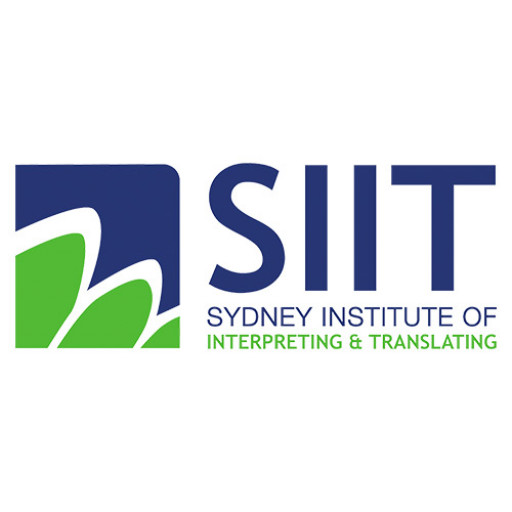Photos of university / #rmituniversity
The Bachelor of Arts in Interpreting (LOTE English) at RMIT University offers students an in-depth training in professional interpreting across a variety of settings. Designed for individuals who are bilingual or multilingual and aspire to become qualified interpreters, this program provides comprehensive instruction in interpreting theories, techniques, and ethical practices. Students will develop advanced language skills in both their LOTE (language other than English) and English, ensuring they can accurately convey meaning, tone, and cultural context in complex situations. The curriculum combines theoretical coursework with practical interpreting exercises, including simulated assignments and real-world placements, enabling students to gain confidence and competence in their interpreting abilities.
Throughout the program, students will learn about the cultural nuances and professional standards necessary for working in diverse environments such as legal, healthcare, diplomatic, and community settings. They will also acquire skills in note-taking, memory, and analytical thinking, which are essential for high-quality interpreting. The program emphasizes ethical considerations, confidentiality, and the importance of impartiality, preparing graduates for the ethical challenges faced in the profession. Additionally, students will have opportunities to specialize in specific interpreting fields, such as court interpreting, medical interpreting, or community interpreting, depending on their career interests.
Graduates of this program will be equipped to work as professional interpreters within government agencies, courts, hospitals, international organizations, and the private sector. The program aligns with industry standards and offers recognition pathways for various interpreting bodies, enhancing employment prospects. By completing the Bachelor of Arts in Interpreting (LOTE English), students will join a dynamic and evolving profession that plays a vital role in facilitating communication and understanding across cultures and languages, contributing to a more inclusive society.
The Bachelor of Interpretation (LOTE English) at RMIT University is a comprehensive and professionally focused program designed to prepare students for careers as skilled interpreters in a variety of settings. Throughout this degree, students develop advanced language skills in their chosen language other than English, along with specialized training in interpreting techniques across multiple domains, such as community, court, healthcare, and conference interpreting. The curriculum emphasizes both the theoretical foundations of interpreting and practical, hands-on experience, ensuring graduates are well-equipped to meet the demands of the interpreting profession.
Students engage in rigorous coursework that covers language proficiency development, cultural competence, ethics, and professionalism in interpreting. They learn to apply diverse interpreting methods, including consecutive, simultaneous, and sight translation, using state-of-the-art interpreting equipment and software. The program also incorporates training in specialized vocabulary and terminology for various sectors, enabling students to interpret accurately in complex and sensitive situations.
In addition to language and interpreting skills, the program emphasizes critical thinking, active listening, and effective communication strategies. Students are encouraged to understand the cultural nuances and societal contexts relevant to their language pairs, which enhances their ability to facilitate clear and accurate communication. Practical experience is a core component, with students participating in internships, simulated interpreting scenarios, and real-world assignments to build confidence and professional competence.
The Bachelor of Interpretation (LOTE English) program prepares graduates for employment in public service agencies, court systems, healthcare institutions, community organizations, and private sector interpreting services. The flexible structure allows students to customize their learning according to their language interests and career aspirations. Upon successful completion of the program, graduates receive a recognized qualification that supports their entry into the interpreting profession and further specialization or postgraduate studies in translation and interpreting.
Overall, this program offers a rigorous and rewarding pathway into the interpreting field, fostering multilingual and intercultural competence, technical skills, and a strong ethical foundation essential for effective communication across languages and cultures.
Program requirements for the Bachelor of Arts (Interpreting) (LOTE English) at RMIT University include the successful completion of core and elective courses designed to develop advanced interpreting skills, language proficiency, and cultural competence. Students must demonstrate a high level of proficiency in both their LOTE (Language Other Than English) and English, often validated through language placement tests upon entry. The curriculum encompasses foundational modules in interpreting theory, ethics, and professionalism, combined with practical interpretation exercises in a simulated environment that mirrors real-world settings such as legal, medical, and community contexts.
Students are expected to complete a specified number of credit points across a range of subjects, including language enhancement courses, interpreting practice, and interdisciplinary electives that broaden intercultural understanding. Internships and industry placements may be incorporated into the program to provide hands-on experience, with requirements tailored to ensure students meet professional standards required by interpreting bodies. The program emphasizes continuous assessment through assignments, practical exams, and portfolios demonstrating interpretive competence.
To graduate, students must achieve a minimum GPA as mandated by the university and pass all core courses with a satisfactory grade. Additional requirements may include participation in workshops, conferences, and language immersion activities to deepen linguistic and cultural skills. Students should also adhere to the professional code of conduct and complete any necessary certification or accreditation processes required for employment as interpreters. Rigorous language proficiency and interpreting skill assessments throughout the program ensure graduates are equipped for entry into the interpreting profession.
The Financings studies for the Interpreting (LOTE English) program at RMIT University encompass a comprehensive overview of the financial aspects involved in pursuing this undergraduate degree. The program offers students various avenues for funding their education, including government scholarships, federal and state financial aid programs, and private scholarships specific to language and interpreting studies. Students are encouraged to explore the Australian Government’s Higher Education Support Act (HESA) which provides options such as FEE-HELP, allowing eligible students to defer the cost of their tuition fees until they are financially able to repay the loan through the taxation system. Additionally, RMIT University provides their own scholarships and grants aimed at students enrolled in interpreting and translation courses, which are awarded based on academic achievement and financial need. The fee structure for the program reflects the standards for undergraduate courses at RMIT, with details varying depending on domestic or international student status. International students are required to pay full tuition fees, which are aligned with the university's international fee schedule. Domestic students are eligible to access government-supported schemes, significantly reducing out-of-pocket expenses.
Apart from government funding, students can explore external scholarships offered by linguistic associations, cultural organizations, and private donors that aim to promote bilingual interpretation and language services. The cost of living and additional expenses such as textbooks, technology, and professional equipment are also relevant to the total cost of studying. RMIT provides financial counseling services to assist students in planning and managing their study finances effectively. The university's flexible payment options, including payment plans and installment options, facilitate manageable financial arrangements for students. Considering the global demand for interpreters with proficiency in English and other languages, the investment in this program is seen as strategic, with strong potential for employment and career development post-graduation. Overall, the financing landscape for the Interpreting (LOTE English) program at RMIT is designed to support students in acquiring quality education without undue financial hardship, making it accessible for a diverse range of students interested in pursuing a career in interpreting.
The Bachelor of Arts (Honours) in Interpreting (LOTE English) at RMIT University is a specialized program designed to prepare students for professional careers in interpreting and translation. This program emphasizes developing bilingual proficiency, cultural competency, and specialized interpreting skills across various contexts, including community, health, legal, and business settings. RMIT’s curriculum is grounded in practical training complemented by theoretical knowledge, ensuring graduates are well-equipped for the demands of the interpreting industry. The program typically involves coursework in language proficiency, intercultural communication, ethics in interpreting, and specialized fields such as medical, legal, and conference interpreting. Students are provided with opportunities to engage in immersive learning experiences, including simulated interpreting scenarios, internships, and industry placements, to enhance their practical skills and professional readiness. The program aims to produce graduates who are not only proficient in their LOTE (Language Other Than English) and English but also possess a comprehensive understanding of the interpreting process, ethical considerations, and industry standards. The degree often collaborates with professional interpreting bodies to ensure curriculum relevance and to facilitate entry pathways into the industry. Upon completion, graduates are qualified to work as interpreters in various sectors, helping bridge communication gaps in multicultural and multilingual settings. The program is designed for students with a high level of language competence in their chosen LOTE and proficiency in English, and it requires dedication to mastering the intricacies of effective interpreting. Career opportunities for graduates include working for government agencies, international organizations, healthcare facilities, legal institutions, and private interpreting firms. The program’s structure combines coursework, practical training, and assessments that prepare students for real-world interpreting challenges. Overall, this program provides a comprehensive foundation for students seeking to make a meaningful impact through language services, ensuring they are competent, ethical, and adaptable professionals in the interpreting field.




